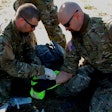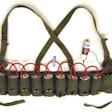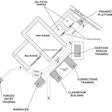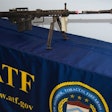In a recent SWAT blog, I discussed how the lingering recession is taking a heavy-duty toll on law enforcement agencies across the nation. Simply put: No one has any money.
Even with federal stimulus money, many agencies continue to struggle financially. Far fewer new officers are being recruited or hired. Personnel layoffs and demotions are becoming more common. Less equipment and vehicles are being purchased. And more programs are falling into the "nice to have" category, meaning they'll soon be cut out entirely.
Let's face it. Most agencies are already stretched to the breaking point. And with administrators looking at where, what, and who to cut, eventually SWAT will be put under the microscope.
So if you're in SWAT, this is where you come in, especially team commanders and leaders. Your team's very survival might depend on how "essential" the team is or, more aptly, how essential it's perceived to be.
Your SWAT team needs to be viewed as "essential" to the agency's mission and operation. To that end, reputation is all important, both inside and outside your department. The more professional your team is, the more respected it will be.
It only takes one "bad apple" or one bad incident to spoil the good reputation of an entire team. And once a team's reputation is tainted, it becomes vulnerable to the "chopping block." Case in point: the Midwest city whose full-time tac team was labeled by some as "uncontrollable." Warnings to "straighten up" went unheeded and before long the team was summarily disbanded.
So, what can a team do to survive, and even thrive, in today's difficult economic times? Your best strategy to ensure your survival is to always be professional and act professional. Do the job, do it well, do it right every time.
If your team's reputation is not what it should be, don't be surprised if/when the team takes a hit or is possibly even "deleted from the organizational structure." If that happens, it may take years before a new team takes the old one's place.
Team commanders and leaders need to constantly reassess the team's role in the agency. I highly recommend every SWAT team become its agency's "go to" tactical specialists. This is something that can only be done by first establishing a reputation of professionalism and excellence.
It also helps for your team to make as many friends and as few foes as possible. The more allies you have pulling for your team, the better your chances to survive the chopping block.
Being your department's go-to tactical specialists means volunteering for all things tactical. This is especially true for teams that are seldom used and far less so for busy teams. In my opinion, the busier a SWAT team is, the better for everyone, especially the team. Busy translates to essential, resulting in less likelihood that the team will experience major cuts.
And use some common sense about equipment. Unless absolutely essential, now is not a good time to ask for equipment, except to document your needs for when there is funding available.
Training is usually one of the first areas to be cut in bad economic times. So, until the economy loosens up, your team might need to train mostly in-house and/or with other nearby teams.
When it comes to "big ticket" items such as equipment, vehicles, outside training, just to name a few, it's either "feast or famine." When it's famine, we need to bite the bullet, until things eventually improve enough for us to feast again.
Regardless, the job still needs to be done, and it appears the economy is having yet another side effect. Bad guys appear to be growing bolder and more desperate by the day. Which in turn, is dramatically increasing the danger level for both the public and police.
SWAT needs to be part of the solution and not viewed as part of the problem. Throughout it's 40-something year history, SWAT has by necessity continually adapted to the changing needs of their agencies and communities.
This requires SWAT leaders to be visionary and proactive in responding to emerging trends. And SWAT team members at all levels need to be versatile and flexible enough to adapt to changing missions.
When it comes to SWAT, one size doesn't necessarily fit all. While the basic concept, strategies, tactics, equipment may be similar, each team, agency, and community is unique.
What SWAT teams need to remember is if they don't take bull by the horns, someone else will do it for them, without SWAT input. The time is now for all SWAT teams to take stock of where they stand today and, more importantly, where they intend to stand tomorrow.




















